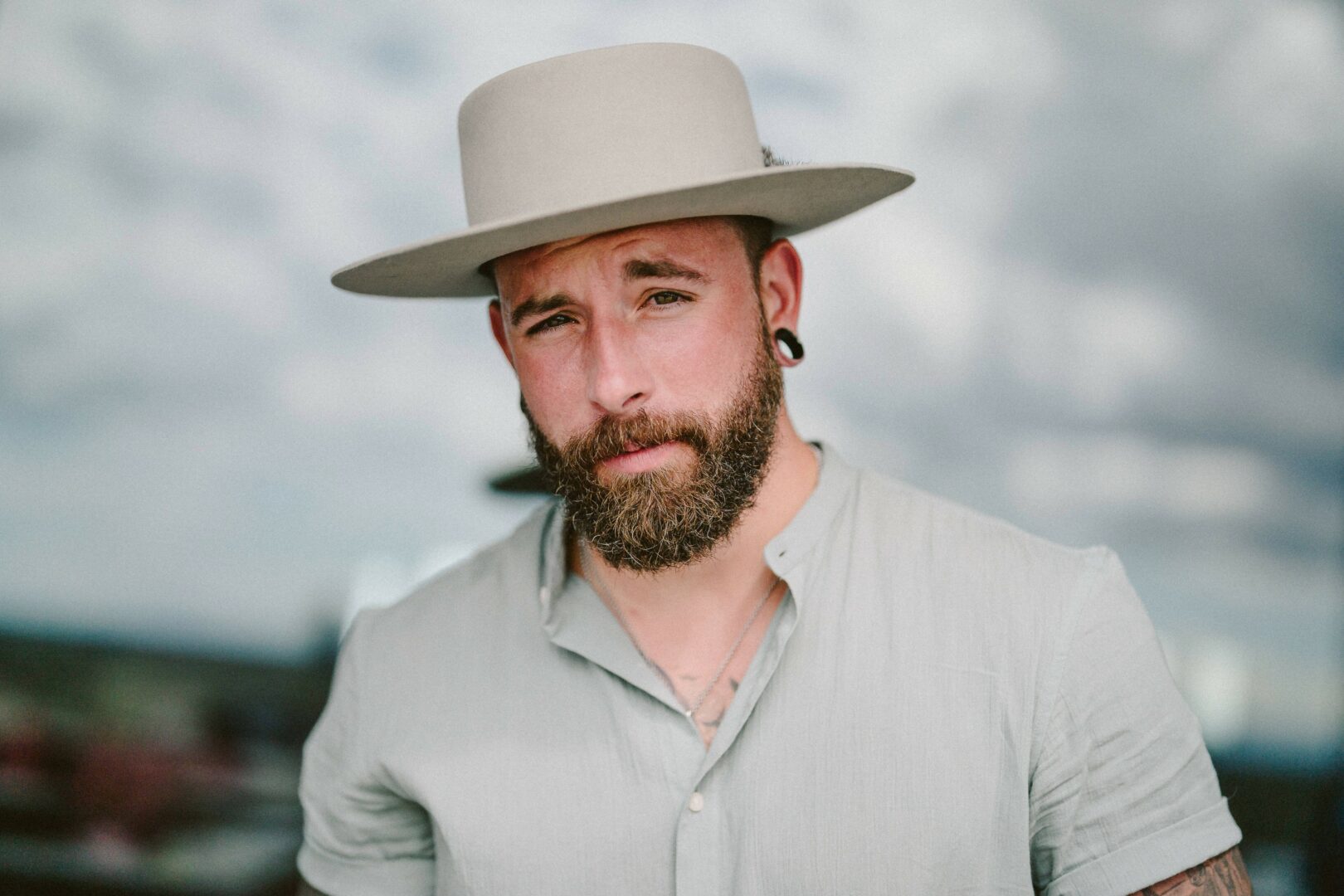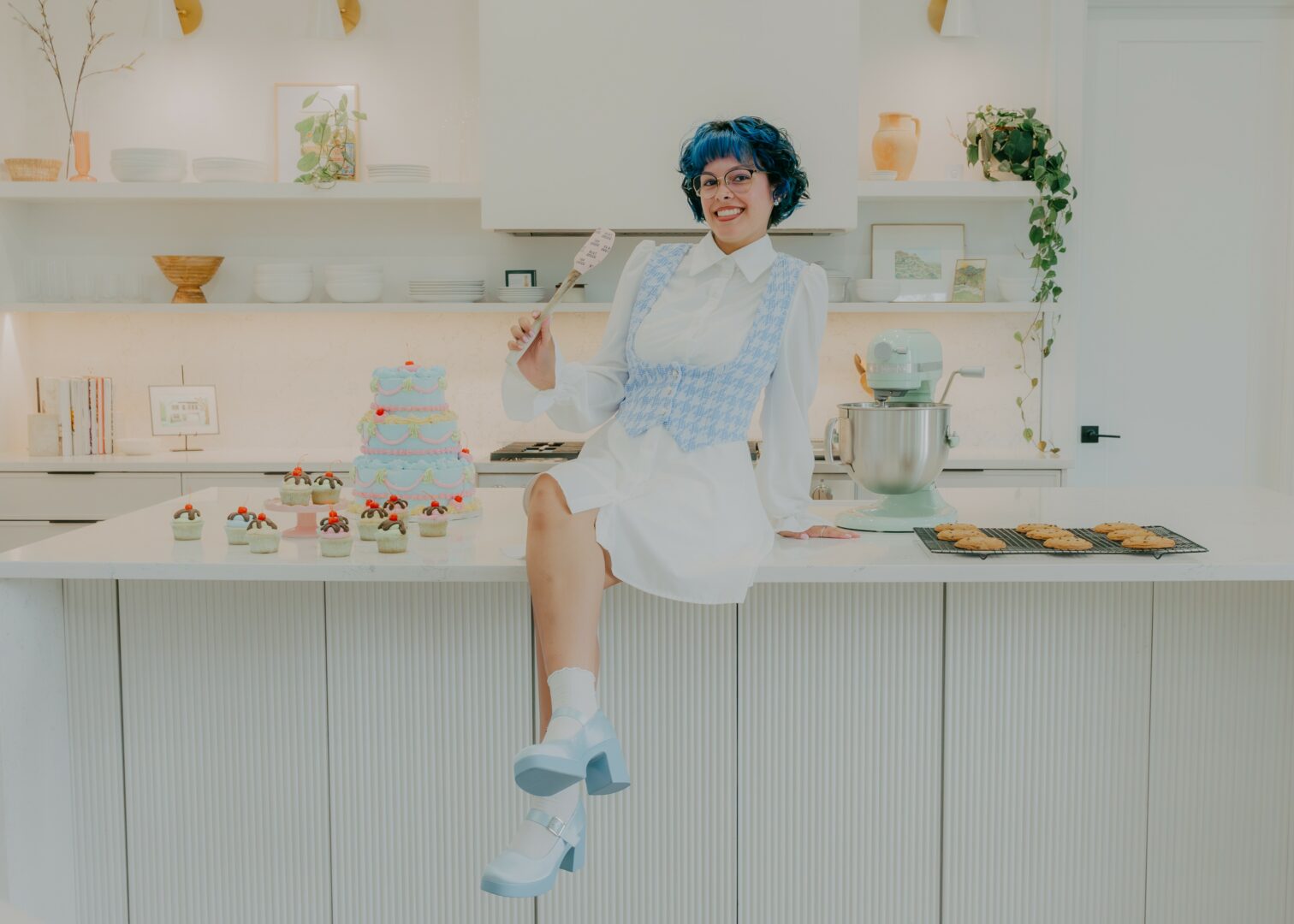We were lucky to catch up with Daisy Forester recently and have shared our conversation below.
Daisy, first a big thank you for taking the time to share your thoughts and insights with us today. I’m sure many of our readers will benefit from your wisdom, and one of the areas where we think your insight might be most helpful is related to imposter syndrome. Imposter syndrome is holding so many people back from reaching their true and highest potential and so we’d love to hear about your journey and how you overcame imposter syndrome.
I consider myself very fortunate in that I’ve never doubted my identity as a musician. Some of my earliest memories are toddling around my parents’ garden, making up songs and melodies about the flowers and bugs and natural phenomena I observed around me. Though being a musician is an essential and immovable aspect of my identity, becoming a professional musician and creating a career around music has placed me in many contexts and environments that deeply challenge and often reject my presence as a musician. At shows, I’m regularly told that the green rooms are for “musicians only” and that “girlfriends and fans aren’t allowed backstage”, where other artists and venue managers assume that my femininity relegates me to the status of a music patron at best. In collaborative spaces my artistic and creative contributions are sidelined and often simply ignored, and I have to navigate uncomfortable and unnecessary power struggles to have my voice heard. The nature of being a performing musician requires intentionally placing yourself in the public spotlight, and my being femme means this visibility exposes me to higher levels of harassment, sexualization/objectification, and sexist comments. The more I pursue a career in music, the more I’m confronted with the externally-enforced dissonances between my identity and my profession.
It is exhausting to continuously assert myself as a creative, professional, and experienced musician within the scene, even coming from a place of privilege as a white, cis-passing person. I used to internalize the messages that I received from others, that I wasn’t talented or professional enough to be welcomed into and supported by the music world. What I’ve learned is that nothing I can ever say or do or be will change that messaging because it isn’t. about. me. I can, however, actively unlearn these messages and surround myself as much as possible with a supportive community so that I can be resilient in spaces that resist accepting me.
Eleanor Roosevelt said, “no one can make you feel inferior without your consent.” Imposter syndrome occurs when you anticipate and embody the rejection of others; for me, I’ve begun to practice internally validating my musicianship and fully embodying my inherent immovable identity as a musician. This manifests as not being afraid to call others out for speaking over me or sidelining my accomplishments, and taking time to make fun, fulfilling music that exists solely for me, in addition to all the art that I share. Though I anticipate that I’ll always struggle with residuals of imposter syndrome as a femme musician, I now have practice challenging both internal and external disempowering messages so that I can protect and embody my authentic self in every space. I’m constantly learning and growing, and I am eternally grateful to my community for supporting me through this ongoing process.

Great, so let’s take a few minutes and cover your story. What should folks know about you and what you do?
I’ve been writing songs for as long as my memory serves me, and I’ve found that lyrics, melodies, and poetry are consistently the best tools I have for processing my experiences and identity. My art is my journal, confessional, and therapist. I’ve learned to be disciplined and structured in my songwriting process, but often my favorite songs pop into my head as I walk to class, bike to work, or make dinner. It feels like I tap into something tangible and pre-existing; sometimes it’s all I can do to channel the current of melodies and lyrics fast enough. In addition to being classically trained on cello and bass, I’ve taught myself guitar and piano in efforts to provide my songs as much substance as I can while writing/channeling them.
Making music is not only how I’ve learned to navigate my inner and external realities but is also where I’ve found my community. I’ve taught cello for years, and have worked as a band and bass coach at Girls Rock and Roll Retreat (a camp that I attended as a child, and where I made my first proper introduction with the bass!). I’m currently involved with Twin Cities United Performers, a local group organized around making Minnesota the best (fairest, most fun, and most sustainable) place to be a musician in the world. I’ve been a solo performer since my early teen years and have played with multiple bands and projects since, Dial Tone being the most recent.
As an independent musician, I manage every aspect of my music career. I write and produce all my music, build bills for live shows, coordinate with booking and venue managers, collaborate with other artists, negotiate payment, design and vend merch, create content, and manage my musical media presence as a DIY musician. I love having autonomy and creative and collaborative control over my art, and I am endlessly fulfilled by and grateful for the community that responds to and supports what I do. Being an independent, DIY musician means I get to create the art that is relevant and authentic to me while still getting to be strategic and intentional about how I connect with and reach broad audiences. Through my work, I partner with not only other musicians and artists, but other pillars of my community, such as local organizations, radio stations, media, and businesses.
Don’t get me wrong, I would not be successful if I didn’t collaborate with other extremely talented musicians and artists and I would not be where I am today if it wasn’t for these partnerships. I firmly believe we are strongest together, and I’m honored to be able to co-create and co-support my community through my art and these partnerships. At the end of the day, though, I am an independent artist, which means I’m the only one who gets to decide how to create art that allows me to sleep at night.
I’m currently writing an EP and building a new musical project, so stay tuned for new music and live events! One of the most exciting aspects of my professional music career is that I’m only getting started.

If you had to pick three qualities that are most important to develop, which three would you say matter most?
I would not be anywhere near where I am today if it weren’t for my community. I am incredibly lucky to be surrounded personally and professionally by such supportive, lovely people, but community is not built accidentally. A successful, fulfilling profession means being an engaged community member across all sectors of your network, not just the one you work within. So many more doors open for you if you’re already in the neighborhood! As a musician, this rings especially true as my career relies on having strong relationships with other artists, venues, independent media creators, and managers, but community is essential no matter what your focus or career is. I’ve learned that when I’m intentional about how I show up and show out for my community, they show up and show out for me.
Another important element of this is that you have to be willing to accept support from others; when I first started as a young musician, I felt like I needed to be fully independent in order to a.) make authentic and fulfilling art and b.) earn respect as a soloist within the scene. This left me siloed from my community and potential mentors who were able and willing to uplift my budding career, and burnt out from feeling like I had to manage the personal and professional complexities of being a musician all on my own.
Don’t get it twisted, there are many people out there who claim to have the capacity to support you but have ulterior motives; one of the most transformative things that I’ve learned throughout my life is how to discern which relationships are personally and professionally symbiotic, and trust myself in this discernment. Some people might call this strategic networking, but I prefer to think of it as community building and empowerment. Be kind to everyone, be curious and sensitive with others, and put yourself out there in as many diverse contexts as possible to intentionally create a holistically supportive and fortified community to exist within. It’s exciting and transformative to find your people, and will ultimately help you be the most successful and happy in your personal and professional goals.

Okay, so before we go we always love to ask if you are looking for folks to partner or collaborate with?
I am always looking for people to connect and work with! I am a firm believer that we are strongest together and that the best stuff is created through collaboration. With my current project, I’ve prioritized writing stompy, validating, fun, and empowering songs that need other femme, trans, nonbinary, and gender expansive musicians to help bring them to a reality. If this sounds like something you’re interested in, let’s talk! There is so much cool music that hasn’t been made yet; let’s get to work!
email: [email protected]
Instagram: @daisy_forester or @daisyforestermusic_
Contact Info:
- Website: https://linktr.ee/dialtoneofficial
- Instagram: @daisyforestermusic_, @dialtoneofficial
- Linkedin: https://www.linkedin.com/in/daisyforester/
- Youtube: https://www.youtube.com/@DialToneofficial



Image Credits
Nick Greseth
Avery Schlegel
so if you or someone you know deserves recognition please let us know here.




